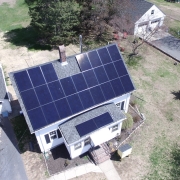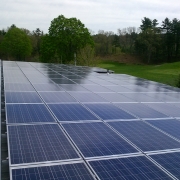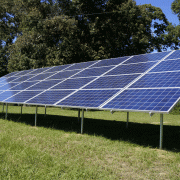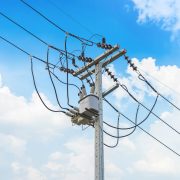Benefits of Solar Power on the Environment
We all know that solar power is clean and environmentally friendly. But how exactly do your solar panels help the earth? Here are six ways that solar energy benefits the environment:
1. Solar panels do not emit any carbon dioxide while producing energy
Fossil fuels emit carbon dioxide when they are burned for energy. The excess carbon dioxide that they produce is the largest contributor to global warming an d climate change. Climate change causes rising global temperatures, reduced biodiversity, increased extreme weather and natural disasters, rising sea levels, and many other humanitarian and environmental crises. Because solar energy is one of the cheapest and most widely available sources of renewable energy, it has the power to greatly reduce carbon emissions. Solar in turn will help reduce the detrimental effects of climate change on the planet.
d climate change. Climate change causes rising global temperatures, reduced biodiversity, increased extreme weather and natural disasters, rising sea levels, and many other humanitarian and environmental crises. Because solar energy is one of the cheapest and most widely available sources of renewable energy, it has the power to greatly reduce carbon emissions. Solar in turn will help reduce the detrimental effects of climate change on the planet.
2. Solar power is renewable
Unlike energy derived from fossil fuels, which will eventually run out, the sun serves as an infinite energy source. Capturing and storing the sun’s energy (for example – in solar batteries) will provide sufficient energy to power our lifestyle. It will also provide power for future generations, without depleting the earth’s natural resources.
3. Solar energy creates less air and water pollution
Traditional energy production methods use mining, drilling, fracking, or other processes that produce pollutants. These pollutants are released into the air or seep into the water supply. However, solar production does not require any of these processes.
4. Solar energy requires little water
It does not take a lot of water to produce solar power, especially compared to other types of energy production. For example, fossil fuels and nuclear power both require a large amount of water to function when the temperature is high. However, solar panels function well in any temperature (up to 185 °F!), so the don’t require more water during heat waves.

5. Energy is produced locally
Solar panels allow energy to be produced locally. This means that individuals are less reliant on natural resources like oil from foreign countries. This eliminates all the carbon emissions associated with transportation of fossil fuels across continents. Greenhouse gas emissions from transportation contribute to almost one third of US emissions that cause climate change.
6. Solar panels are durable
Solar panels are durable and last a long time, therefore they require less maintenance. Maintenance and upkeep of non-renewable energy sources often requires energy units to be replaced more often, producing more waste.









